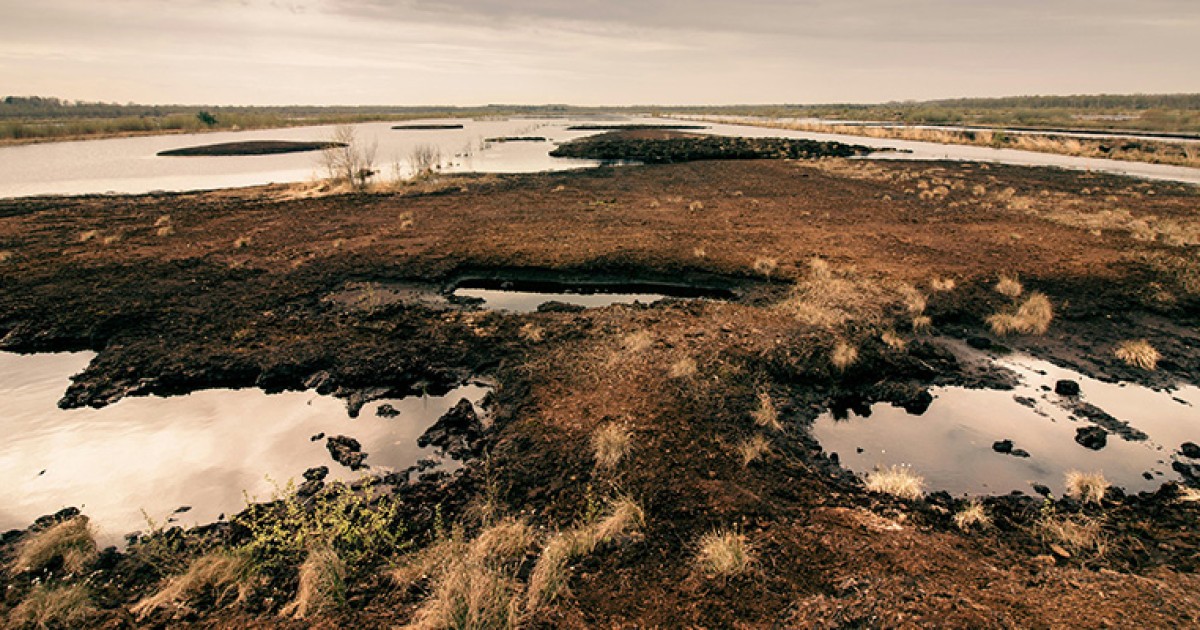£8.4m agricultural innovation to support the future of farming

Realistic and practical solutions to the sustainable farming of peatlands will be shown to farmers through a series of paludiculture demonstration sites to developed by Manchester Metropolitan University and partners from the the UK, Ireland and the Netherlands.
Paludiculture is sustainable agriculture and forestry on wet peatlands. It combines land use and crop production with the reduction of greenhouse gas emissions.
Greenhouse gas emissions from degraded peat soils are some of the biggest contributors to the UK’s land-based carbon emissions. In 2020, carbon emissions from drained agricultural peatlands in England were estimated at 8.5 million tonnes, which is around 3% of England’s overall emissions.
Re-wetting drained peat soil reduces carbon emissions, helping to restore damaged peat bogs so that they can secure their existing carbon stores and begin to accumulate carbon, and reduce the amount of greenhouse gas in the atmosphere. Re-wetting also reduces subsidence and peat loss, meaning the land remains productive into the future.
The four-year project, Palus Demos, aims to help farmers diversify profitably while meeting climate goals, bringing together 26 international partners, who will be growing crops including sphagnum moss, bulrushes, blueberries and cranberries.
Greenhouse gas emissions will be monitored to see how much carbon could be saved by converting land from drainage-based uses to paludiculture. Business cases will then be developed to give farmers real-world data before they embark on their own paludiculture projects.
Dr Chris Field, Reader in Environmental Ecology at Manchester Metropolitan, said: “The Palus Demo project will show how paludiculture can preserve peat soils, provide economic opportunities for farmers and reduce greenhouse gas emissions, with our part of the project focusing on the North West.
“This is key to supporting the future of farming in a sustainable way that reduces greenhouse gas emissions but is also practical for farmers, who depend on the land for their livelihoods.”
Sarah Johnson, Head of Peatland Nature Recovery at Lancashire Wildlife Trust, one of the project partners, said: “In the UK over 80 per cent of our peatlands are damaged and the vast majority of our lowland peat has been drained and converted to agriculture.
“Much of this land is rapidly losing soil health and becoming difficult to farm, as well as releasing a staggering 3 per cent of our total UK greenhouse gas emissions. We know that by re-wetting previously drained peatland we can reduce these emissions by up to 90 per cent, but so many people’s livelihoods depend on this land that we need to find a way to keep them financially viable – this is where paludiculture comes in.”
The Palus Demos runs until January 2029.




